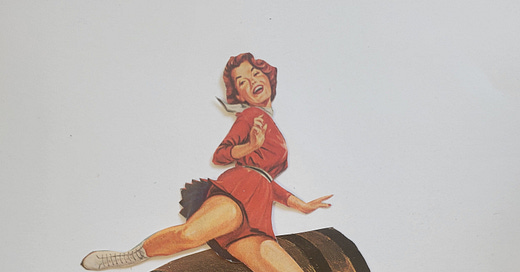E39. Lou Reed's Nephew's Narrator Sells Out
I worked to live, or had at one point, and could not learn how to live to work. Not now. It was too late.
I wrote to Ulugbek via all the means I knew. Ticket, text, email. Even LinkedIn. I asked about his communication with Lou Reed’s Nephew and the status of our new, improved database, which now included places, events, and people. He answered via ticket and only about the database. He ignored my questions about Lou Reed’s Nephew entirely.
“Database fine,” he wrote. “On track for 10.27.13 go-live.”
This was the most recent go-live date we had set. It was one week before a new, mysterious competitor had announced they would launch their complete database of events, places, and people, and the date we had promised my brother-in-law. Renata had been sweet about all this, in part because I had not shared with her how much we were scrambling. I wanted to, but she was the sister of my major investor, so I was cut off from such comforts.
This new competitor had emerged out of nowhere. No one seemed to know much about them, but smaller competitors were dropping like flies. Everyday there were more empty cubes. Even the South African seemed concerned. The disappearances stoked my paranoia. Though I had no idea what their business was or had been, I imagined that each vanished startup held a critical piece of the database puzzle that had just been sucked up by my competitor.
“You know, you could just sell it,” Lou Reed’s Nephew suggested out of nowhere.
“What do you mean?”
“You’ve never been comfortable with it. That’s clear. You’re stressed out. Look at you. I don’t know much about you, but you don’t seem to be handling this very well. You take it all so hard.”
I wanted to explode. Like a puff pastry full of screams. Take it all so hard? What did he know, this little nihilist, this Holly Golightly? (Who would not even know what that meant!) Skating through life with no commitments. It had been so much easier when I was his age, the chemical confidence of male youth coursing through my veins, my ego at its competitive, procreative peak. But things changed. He would see.
I did not explode.
“What do you mean?” I asked calmly, as I had learned to do through years of practice. “Who would buy it?”
“Ulugbek, for one.”
“Ulugbek?”
“Yes. He has some backers. He’s proud of his work. He finds you inscrutable.”
He finds me inscrutable? This was infuriating. Still, I was unexpectedly excited by the prospect of turning the clock back to a time before my horrible decision. I could cash out before it was too late, repay my brother-in-law, and find a regular job. I would have learned my lesson. And what was that lesson? That I was no entrepreneur. I had seen TV shows about entrepreneurs—and had been surrounded by cubes full of them for 792 days—and they were an alien race, motivated by forces I did not understand. Slaves to best practices, gripped by the relentless pursuit of product/market fit. Willing to sacrifice all to reduce the landed cost of some dongle by twenty-five percent, as if it really mattered, like life and death. They had comingled their selves with their enterprises, as the word “entrepreneur,” like “minotaur,” indicated. They couldn’t tell the survival of one from the other.
How could I compete with that? I worked to live, or had at one point, and could not learn how to live to work. Not now. It was too late.
Lou Reed’s Nephew had solved the problem differently. He did not live to work or work to live. He had reduced—or perhaps raised—both to another level. Art, maybe, or an arch conceit. A joke taken way, way too far.
I sent Ulugbek a ticket and my phone rang immediately.
“Yes,” he said.
In that single syllable, his voice disappointed me. It had none of the Cold War menace I heard in my head when I read his tickets or when we locked eyes in my dreams. It was thin and high. Slight.
“You are interested in buying database?” I said, unconsciously mirroring the grammar of his tickets. I hoped he would not be offended.
“Da,” he said.




